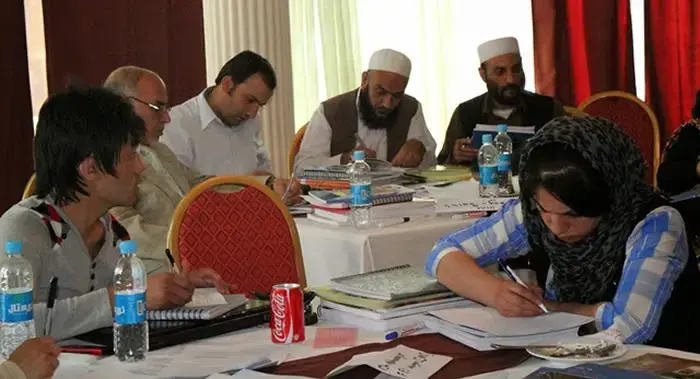Kabul, 22 June 2015 - The United Nations Population Fund, UNFPA together with the Ministry of Interior Affairs is conducting a nine-days training of trainers for the Afghanistan National Police Forces and law enforcement bodies on the newly developed Standard Operating Procedures and Protocols for the Family Response Units on Gender-based Violence (GBV) Case Management.
Ten professionals from the Ministry of Interior Affairs and five professionals from the Afghanistan National Police Academy are attending the training which will be delivered in 20 provinces on a second phase thanks to the support of the governments of Australia and Japan.
In Afghanistan gender-based violence in a widespread problem. Studies confirm that the overall level of violence against women is up to 87 percent of them experiencing at least one form of physical, sexual or psychological violence and forced marriage during their lifetime.
Studies also demonstrate that women and girls suffering from violence continue to face challenges in accessing justice due to several factors and therefore many women victims of violence prefer not to report their situation to law enforcement and judicial institutions due to cultural restraints, social norms, customary and religious beliefs on women's subordinate position, and, at times, even threats to life. As a result, many incidents of violence against women are not reported to formal law enforcement and justice institutions.
An Assessment of Services Provided to Victims of Gender-based Violence by State and Non-state Agencies in Nangarhar, Bamyan and Kabul provinces commissioned by UNFPA identified that most of the service providers do not have units responsible for addressing special needs of GBV survivors.
The study refers also to a shortage of trained female professionals, a lack of a standardized approach to process GBV cases, an absence of standard operating procedures and the common use of a "reconciliation approach" in addressing GBV cases by the majority of state agencies.
The training is part of a project started in 2013 between UNFPA and the Ministry to strengthen the capacity of the Afghanistan National Police Forces and law enforcement bodies to address cases of violence against women and girls, introduce standard procedures, data collection forms and ethical guidelines, and increase awareness of the public about violence against women and police response.





